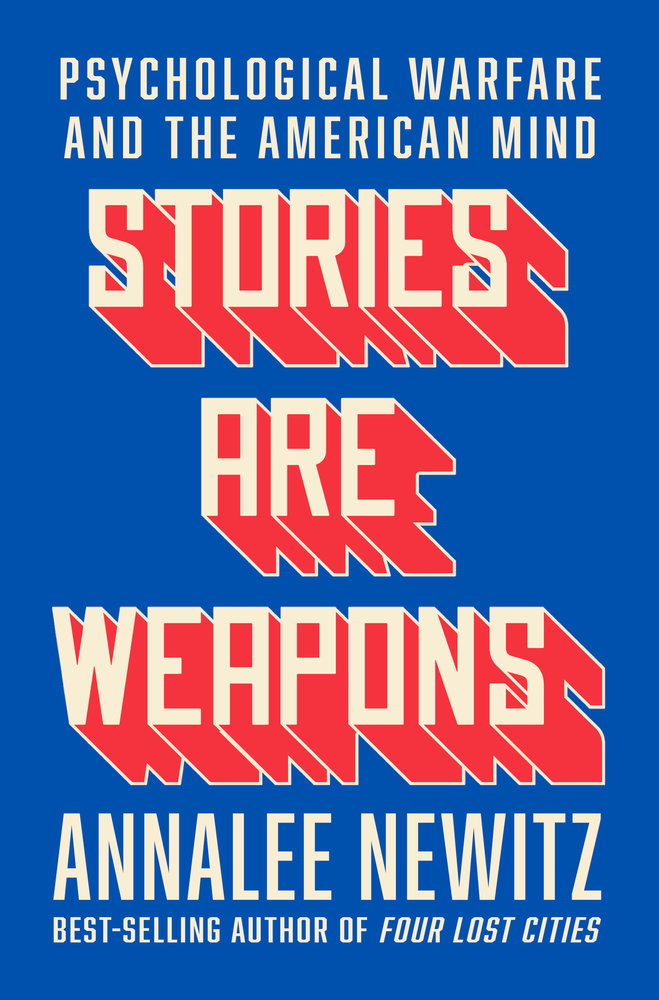One of Publishers Weekly's Top 10 Politics/Current Events books of Spring 2024
A sharp and timely exploration of the dark art of manipulation through weaponized storytelling, from the best-selling author of Four Lost Cities.
In Stories Are Weapons, best-selling author Annalee Newitz traces the way disinformation, propaganda, and violent threats-the essential tool kit for psychological warfare-have evolved from military weapons deployed against foreign adversaries into tools in domestic culture wars. Newitz delves into America´s deep-rooted history with psychological operations, beginning with Benjamin Franklin´s Revolutionary War-era fake newspaper and nineteenth-century wars on Indigenous nations, and reaching its apotheosis with the Cold War and twenty-first-century influence campaigns online. America´s secret weapon has long been coercive storytelling. And there´s a reason for that: operatives who shaped modern psychological warfare drew on their experiences as science fiction writers and in the advertising industry.
Now, through a weapons-transfer program long unacknowledged, psyops have found their way into the hands of culture warriors, transforming democratic debates into toxic wars over American identity. Newitz zeroes in on conflicts over race and intelligence, school board fights over LGBT students, and campaigns against feminist viewpoints, revealing how, in each case, specific groups of Americans are singled out and treated as enemies of the state. Crucially, Newitz delivers a powerful counternarrative, speaking with the researchers and activists who are outlining a pathway to achieving psychological disarmament and cultural peace.
Incisive and essential, Stories are Weapons reveals how our minds have been turned into blood-soaked battlegrounds-and how we can put down our weapons to build something better.


